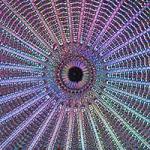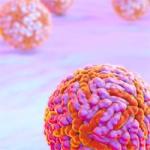
Nicholas Raymond Guydosh, Ph.D.
Senior Investigator
Section on mRNA Regulation and Translation, Laboratory of Biochemistry & Genetics
NIDDK
Research Topics
We are interested in how cells change the expression of genes by controlling the translation of messenger RNAs (mRNAs) by the ribosome. We are interested in both the mechanisms that underlie the basic steps of translation and how these processes are regulated to carry out cellular functions.
Current Research
The translation of the genetic code is fundamental to life and all cells have to determine which mRNAs get translated, how much they are translated, and where within the cell they are translated. We are broadly interested in understanding how cells answer these questions and we address them by using multi-disciplinary approaches such as ribosome profiling and computational analysis, biochemical techniques, and single-molecule fluorescence imaging.
We recently uncovered key steps in the "ribosome recycling" process that removes ribosomes that have finished translating from mRNAs. We found that recycling occurs in separate stages for the large and small subunits of the ribosome and that specific proteins are important for carrying out each step. Failure to properly recycle ribosomes causes reinitiation of translation in regions of the mRNA that are not normally translated. We are interested in how this non-canonical translation might lead to the production of novel peptides or regulate canonical translation. We have also found that widespread RNA decay caused by the antiviral enzyme RNase L can lead to changes in the relative level of non-canonical translation, as well as affect other signaling pathways, and are studying how this affects immunity.
We are also interested in the consequences of cases where ribosomes bump into each other. These ribosome collisions tend to occur more often during stress, such as starvation, that causes the translation cycle of the ribosome to stall. We discovered that a key signaling pathway, the Integrated Stress Response (ISR), can respond to ribosome collisions. How this pathway and other pathways that sense aberrant translation events, such as Ribosome-associated Quality Control (RQC) and Nonsense Mediated Decay (NMD), interact to control stress signaling, mRNA decay, and "rescue" of stalled ribosomes is an important goal of our work. In addition, we are investigating the effect of ribosome collisions that occur at the stop codon on the efficiency of translation termination and the tendency to read through the stop codon, a process that results in proteins with C-terminal extensions.
Applying our Research
The ribosome is central to gene expression so our basic work on ribosome function is critical for developing models of disease. Many of the proteins we study that are involved in ribosome recycling and the detection of ribosome collisions are oncogenes or are are known to be linked to neurological diseases and aging. Many of them are also critical for the immune response. Our work is therefore important for understanding what happens in the cells of patients with these diseases and finding novel targets for pharmaceuticals.
Biography
- Postdoctoral Fellow, Johns Hopkins University School of Medicine, 2009-2016
- Ph.D., Stanford University, 2009
- M.Phil, University of Cambridge, 2003
- A.B., Harvard University, 2001
Selected Publications
- Karasik A, Lorenzi HA, DePass AV, Guydosh NR. Endonucleolytic RNA cleavage drives changes in gene expression during the innate immune response. Cell Rep. 2024;43(6):114287.
- Meydan S, Barros GC, Simões V, Harley L, Cizubu BK, Guydosh NR, Silva GM. The ubiquitin conjugase Rad6 mediates ribosome pausing during oxidative stress. Cell Rep. 2023;42(11):113359.
- Young DJ, Meydan S, Guydosh NR. 40S ribosome profiling reveals distinct roles for Tma20/Tma22 (MCT-1/DENR) and Tma64 (eIF2D) in 40S subunit recycling. Nat Commun. 2021;12(1):2976.
- Karasik A, Jones GD, DePass AV, Guydosh NR. Activation of the antiviral factor RNase L triggers translation of non-coding mRNA sequences. Nucleic Acids Res. 2021;49(11):6007-6026.
- Meydan S, Guydosh NR. Disome and Trisome Profiling Reveal Genome-wide Targets of Ribosome Quality Control. Mol Cell. 2020;79(4):588-602.e6.
Related Scientific Focus Areas

Biomedical Engineering and Biophysics
View additional Principal Investigators in Biomedical Engineering and Biophysics



Molecular Biology and Biochemistry
View additional Principal Investigators in Molecular Biology and Biochemistry

This page was last updated on Thursday, August 7, 2025